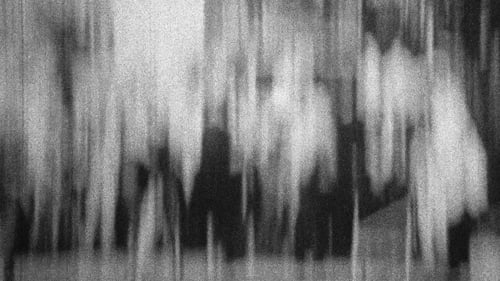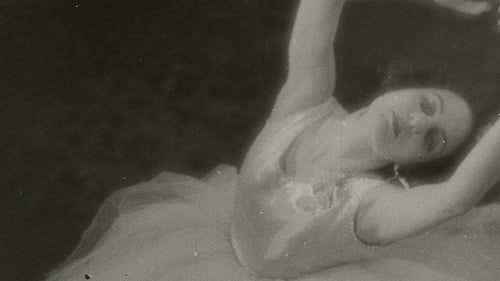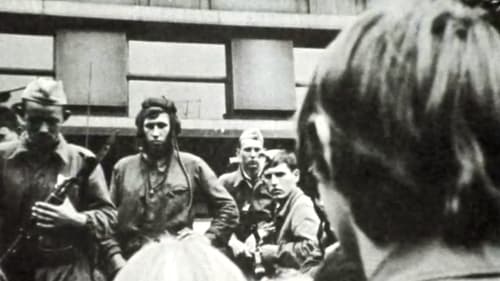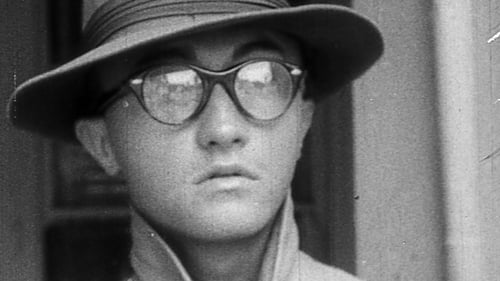Runs Good (1971)
Género :
Tiempo de ejecución : 15M
Director : Pat O'Neill
Sinopsis
A darkish journey down memory lane, to visit some news events, folkways and thought patterns associated with the late forties and early fifties. The film is also concerned with such perceptual phenomena as color-space, "false tones" caused by varying black-white alternations of simultaneously seen rhythms set up by multiple repetitive actions, and the use of image outlines as "containers" for other imagery. Sort of a working notebook, which is continued in EASYOUT and DOWN WIND.

Short film of 7 sections with each one using a different experimental film technique.

An experimental feature made by rephotographing the 1905 Biograph short Tom, Tom, the Piper's Son.

"A film portrait cut to the tune of Conway Twitty's version of 'Mona Lisa.' Filmed in part at a 1964 show of Conner's artwork in San Francisco, the film is also a witty statement about forces that take the life out of art. Vivian Kurz, the subject of the film, is entombed in a glass display case." - Judd Chesler Award: Gold Medal Award, Sesta Biennale D'Arte Republica Di San Marino. Da Vinci thought he caught her smiling.

An avant-garde montage of a boxing match, based on a poem by Paul Werrie.

Aleksandr Ivanovich Medvedkin fue un cineasta ruso nacido en 1900. A los 17 años, fue testigo de la Revolución bolchevique; a los 20 participó en la Guerra Civil, dentro del Ejército Rojo junto a Isaac Babel; a los 38 vivió las purgas estalinistas, y vio cómo su mejor película, "La felicidad", era condenada por reflejar influencias de Bujarin; con 41 años, luchó en primera línea en la II Guerra Mundial, cámara en mano; y murió, en 1989, en plena "perestroika", convencido de que el comunismo, al que él había consagrado su vida, alcanzaba, por fin, su culminación.

A documentary portrait shot in Positano, Italy in 1965 about Australian artist and occultist Vali Myers.

A poetic ode to the River Seine, Ivens' distinguished camera eye surveys its lively banks and step-stone canals with a vérité candor, a beguiling elan.

Four men, each peculiar in his own way, embark on a quest to reason with the estranged wife of the protagonist. This film is considered to be Ghatak's autobiographical film.

I evoke a dancing woman. A woman? No. A bouncing line with harmonious rhythm. I evoke a luminous projection on veils ! Precise matter! No. Fluid rhythms. Why should one disregard, on screen, the pleasure that movement brings us in the theatre? Harmony of lines. Harmony of light. Lines, surfaces, volumes evolving directly, without the artifice of evocation, in the logic of its forms, dispossessed of any overly human sense, allowing an elevation towards the abstract, thus giving more space to sensations and to dreams : integral cinema. —Germaine Dulac

Filmed clandestinely in Czechoslovakia on 16mm. It's one of the films Godard made with the Groupe Dziga Vertov - a Marxist film about the political situation after the '68 revolution.

"My first film, THE PATH, was based on a dream about a group of people on an ‘outing’ or a picnic. The people in the dream meet and greet one another and then walk around and through old houses, barns, and buildings. Inside these structures they pass by other people involved in various activities. A woman is folding clothes. A man is making paintings. A young girl is sitting in front of a mirror trying on different necklaces." - Richard Myers

A documentary short film about the genocide at the Jasenovac concentration camp in Croatia in World War II.

Eureka (1974), which lyrically re-photographs a travelogue shot from a San Francisco streetcar, offers the purest expression of Gehr’s deep love of early cinema as a source of a joyous formal inventiveness-- changing its length from 5 to about 38 minutes.

Dan Drasin's documentary short, shot in a single afternoon in 1961, is often cited as the first major social protest film of the Sixties. When 19-year-old Drasin and his friends joined folk singers and protesters in Greenwich Village's Washington Square Park, they confronted NYC authorities to protest the cancellation of a standing permit to gather and sing in the park on Sundays. Here are the first signs of the political, racial and cultural issues that would soon erupt during the decade.

This story is built up with filmed documents in an experimental fashion.

This film tells the story of Gonthramm, a young knight who sought in vain for the Holy Grail and, on the way back to join his bride, Galeswithe, is met by Queen Banschi in the nightmarish realm of the Sylphs. Brum do Canto based the story on Charles-Marie Leconte de Lisle's Les Elfes.

“Freud established that jokes were structurally akin to dreams in their use of condensation, displacement, representation by opposites, punning and ‘nonsense’. All of these strategies are much in evidence in (Land’s) marvelously duplicitous ON THE MARRIAGE BROKER JOKE… [...] so clever and original a filmmaker as to make most others – not to mention his critics – seem flat-footed by comparison. ON THE MARRIAGE BROKER JOKE harks back to Bunuel’s early work. Not only is it structured like a dream and filled with sexual imagery, but like Un Chien Andalou, it smacks of being an insider’s joke played upon the avant-garde. Where Bunuel used the insights of psychoanalysis to satirize Christianity, Land– with an almost equal perversity – reverses the process and uses Christianity to send up Freud.” – J. Hoberman, American Film

Sadomasochistic images of self-mutilation.

A young man desperately seeks out the fleeting image of a female companion, and though he never quite catches her, he discovers much more through the surreal explorations of his own sexuality.

A documentary of an avant-garde theatre performance, presents an orgiastic rite of sex, degradation, and bloody sacrifice, performed by Zero-Jigen.









